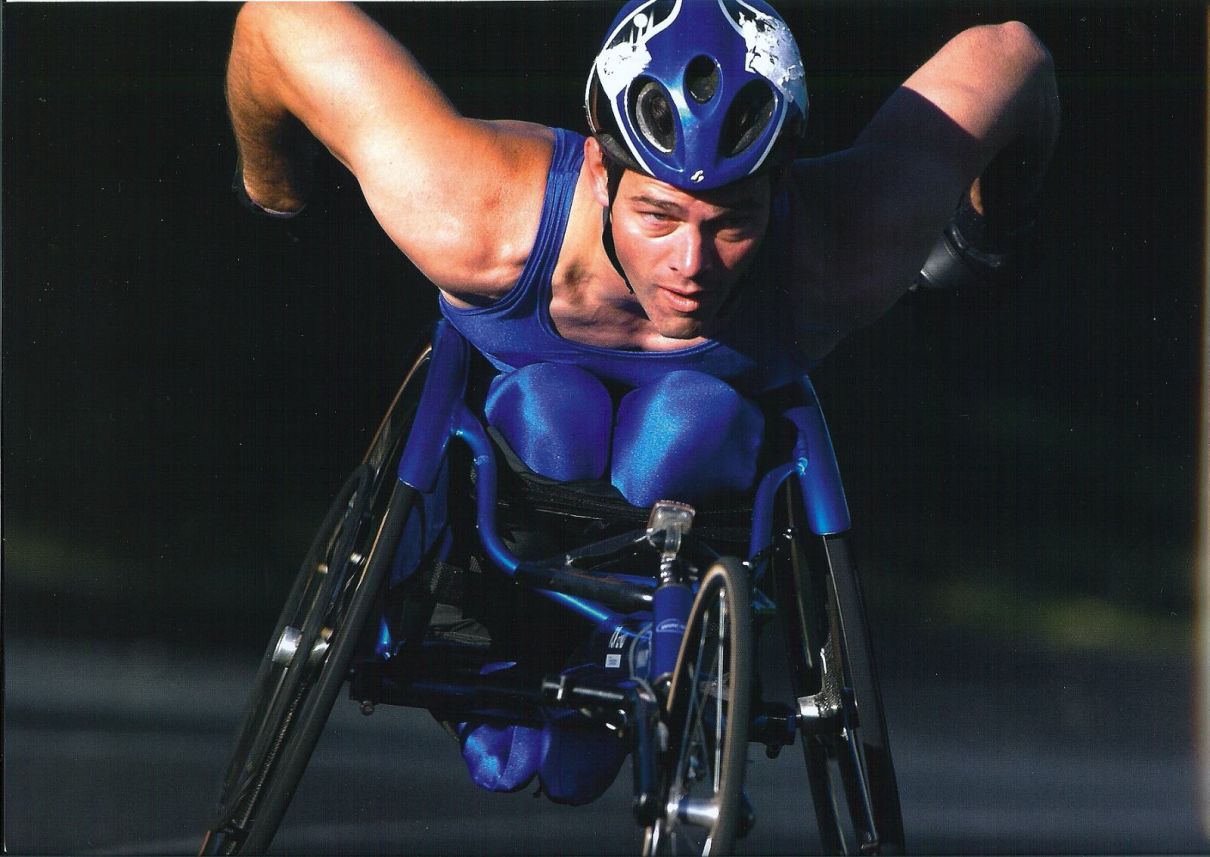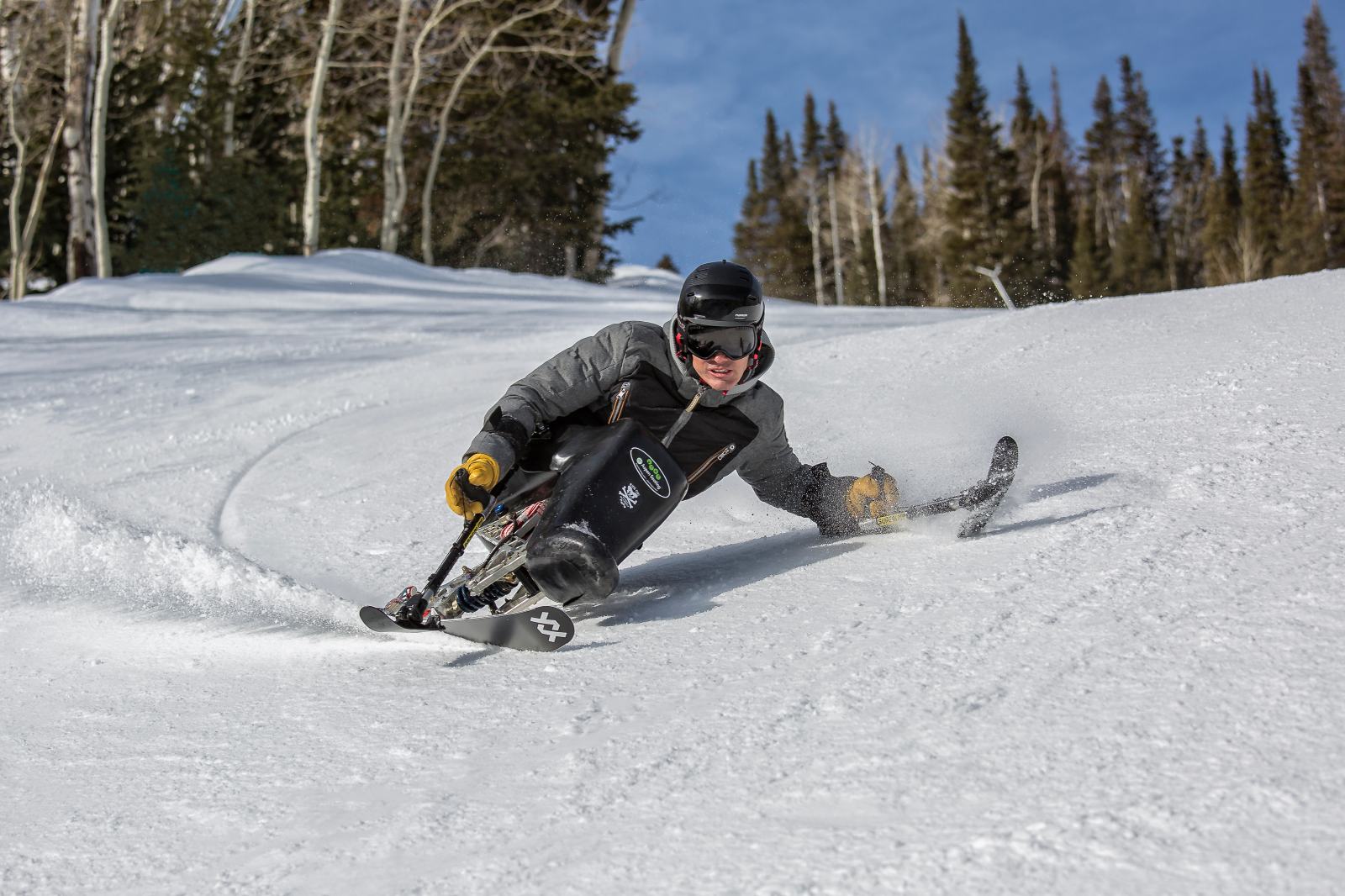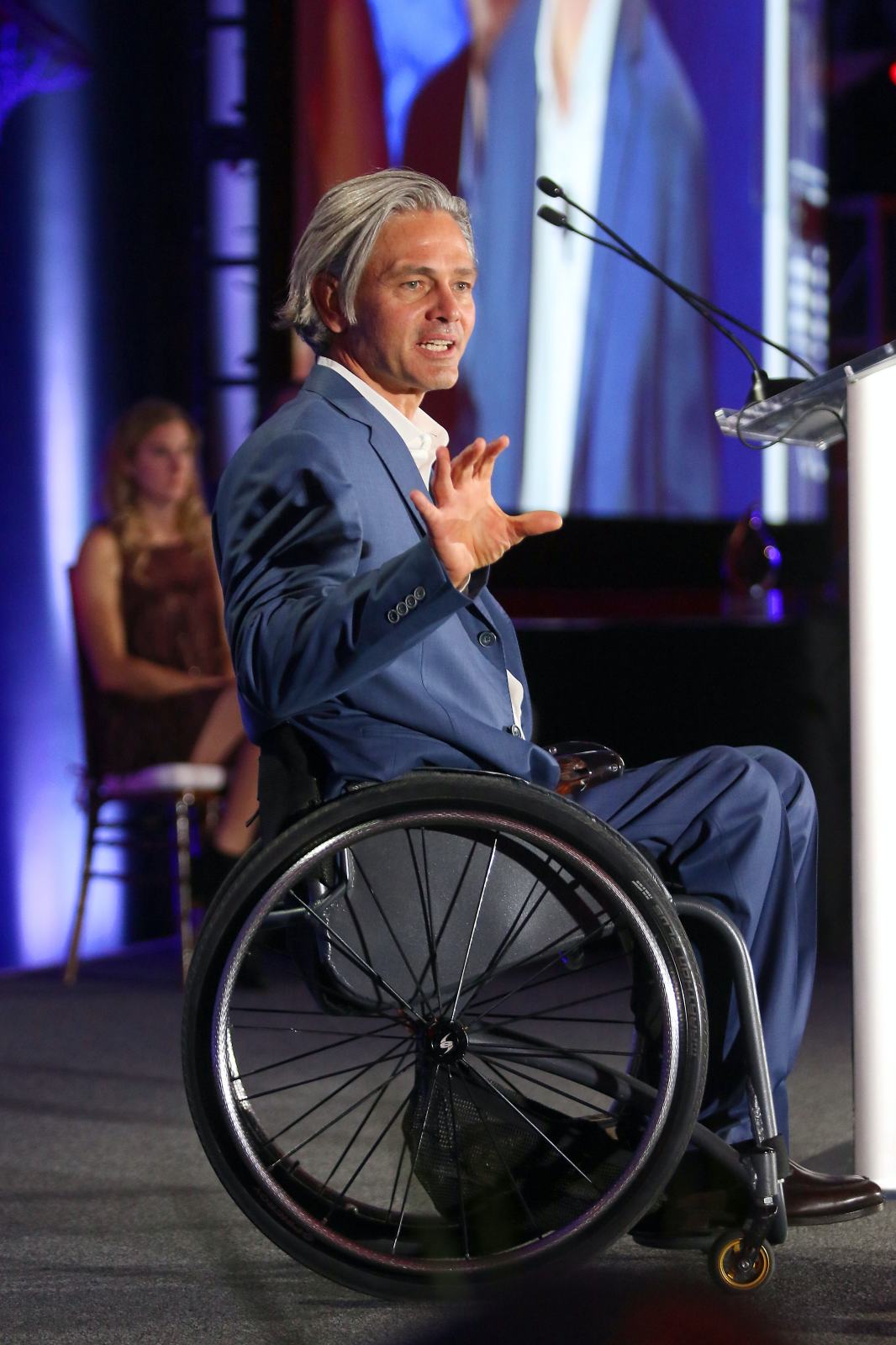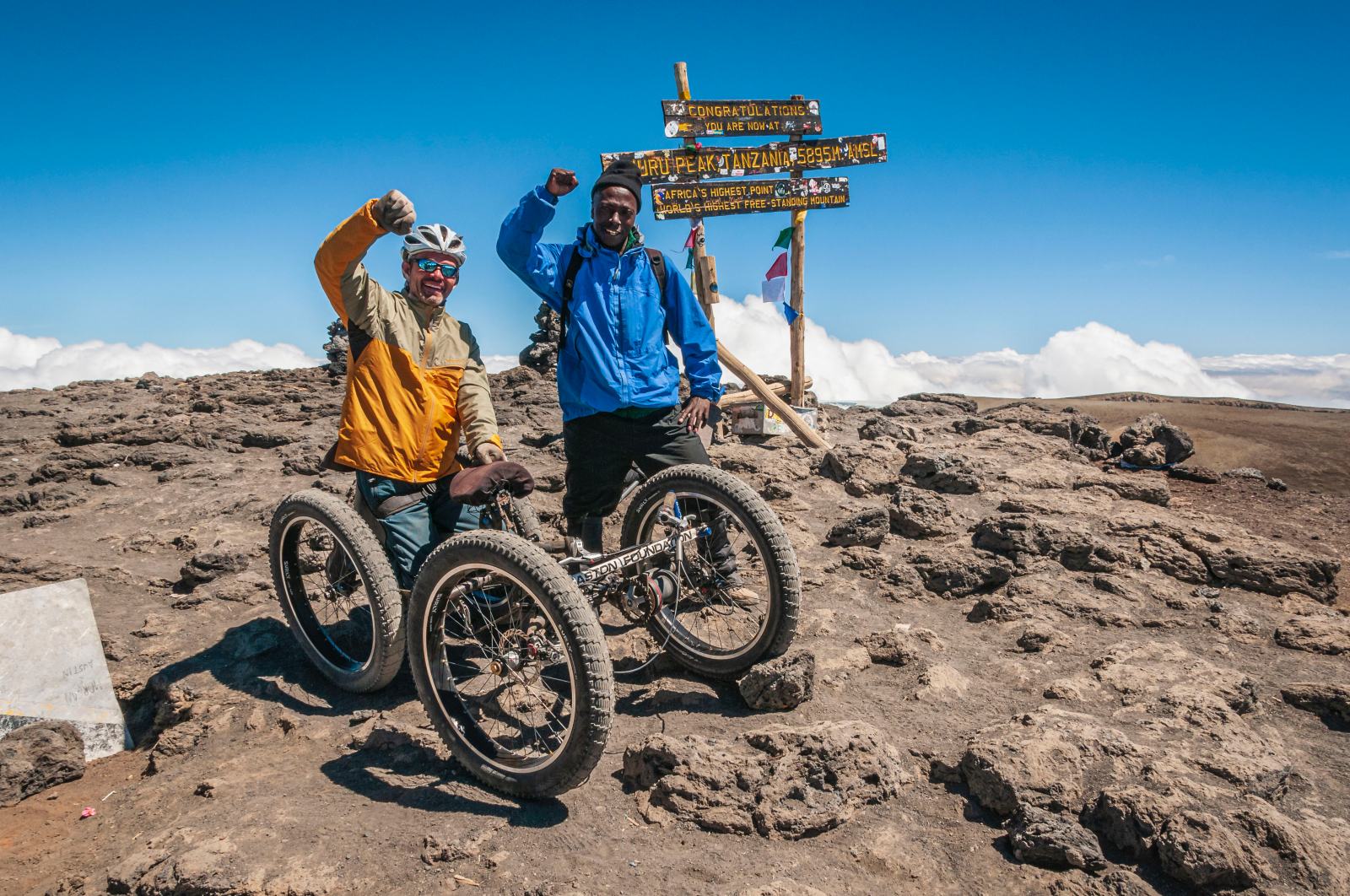On Top of the World

Paraplegic ski champion Chris Waddell is on a mission to inspire and help others.

How do you go from being a promising able-bodied ski racer to a paraplegic in a hospital bed?
This was the question facing Chris Waddell, who at the time of an accident on the slopes of Vermont, was just 20 years old. He made a bad turn and, just like that, was paralysed from the waist down for life.
“My ski just popped off prematurely, I wasn’t even going super-fast, it was just unlucky,” he recalls, over Zoom from his home in Utah.
It was an excruciating transition. “I went from being ultra-fit to utterly helpless and weak. I couldn’t even roll over.” When Waddell got sick with a fever and exhaustion soon afterwards, he recalls a low point of breaking down in tears. “I felt like I’d completely lost control. My spine felt delicate, like a lightbulb filament. I was miserable. I said to my mum ‘I just can’t be like this forever’.”
Perhaps Waddell needed to reach rock bottom to admit to himself that this was his new status quo. “When you think about healing, you think of walking. But as much as I healed, that was impossible.”
After coming to terms with it, Waddell discovered an inner force that drove him to be “the strongest I have ever been”.
In addition to support from his family, one thing helped him overcome a sense of despair. The year before his accident Waddell recalled seeing a woman at a ski resort with one leg; the other had been amputated above the knee. She was on a ‘three-track’: one ski and two outriggers. “My first thought was why is she here? But she actually demonstrated what it is to be an athlete more than anyone else.”

Seeing her, not just surviving but thriving, gave Waddell a seed of hope. He started lifting weights in his wheelchair, then taking part in road races. One day, his old skiing coach, Bart Bradford, called to say that he had seen a team training on mono skis on a glacier in Oregon. He suggested that Waddell buy one.
They drove to the mountain and Waddell attempted to ski sitting on a mono ski. “I didn’t make a single turn that day, I just fell and fell and fell. But it was a gamechanger.”
Waddell’s parents, both ski instructors, and his brother, a ski racer, took him to the mountains to practice. Two weeks later he was competing in his first race. With his old skiing fearlessness and skill, he won. Then came a college team, the nationals and, within a few years, Waddell was winning medals at the 1992, 1994, 1998 and 2002 Winter Paralympics. As a wheelchair track racer, he represented the US at the 1996, 2000 and 2004 Summer Paralympics and won a silver medal in the 200m T53 event at the Sydney Paralympics. In 2004, he set a T53 world record time for this distance, which still remains to this day.
In 2006, Waddell was inducted into the National Disabled Ski Hall of Fame by Disabled Sports USA. In 2010, he was inducted into the Paralympic Hall of Fame.
It was an incredible trajectory and one that Waddell would never have achieved had the accident not happened. “It was a second birth, starting over but with the benefit of having 15 years of ski-racing experience behind me,” he reflects. “My mind knew what I was supposed to do even if my body didn’t.”
But then came Waddell’s greatest challenge yet: retirement from competitive sport. “It was much harder than losing the ability to walk; I lost my platform and my purpose. If I could go 70 miles an hour on one ski, that didn’t fit with the picture of someone on a wheelchair.”

So, he set out on a new challenge: to become the first paraplegic to climb Mount Kilimanjaro, which he did, almost entirely unassisted, in 2009.
“When I lost the use of my legs, I gained entry into a club, albeit one I hadn’t wanted to join. To be an advocate for that group, I had to become the best in the world. When I could no longer do that, I had to do things no one thought possible.”
Shortly after, Waddell was named the 2010 Shining Star of Perseverance Honoree by the Will Return Council of Assurant Employee Benefits to honour and recognise individuals and groups who overcome disabilities to succeed in the workplace and society.
Waddell was inspired and humbled by all of the feedback he received after his climb and set out to continue inspiring others with his story. “People could relate and see themselves in my struggle.”
Now Waddell has a foundation called One Revolution that is dedicated to seeing the world positively and overcoming challenges. He runs a programme in US schools that encourages children to see past their limitations called Nametags. The motto is, ‘it is not what happens to you, it is what you do with what happens to you’.
When asked whether he still regrets losing the ability to walk, Waddell says he wouldn’t change anything.
“A crisis brings out our worst and our best. When we are comfortable, we get complacent and are more likely to complain about our situation and become victims. Back then, I couldn’t let myself be a victim because I would cut myself off from the power that was healing me. Thirty-three years ago, when I made that decision, that was the most powerful I’ve ever been. My victory was simply continuing to believe.”
This article originally appeared in Billionaire's Hope Issue, Spring 2021. To subscribe, contact









